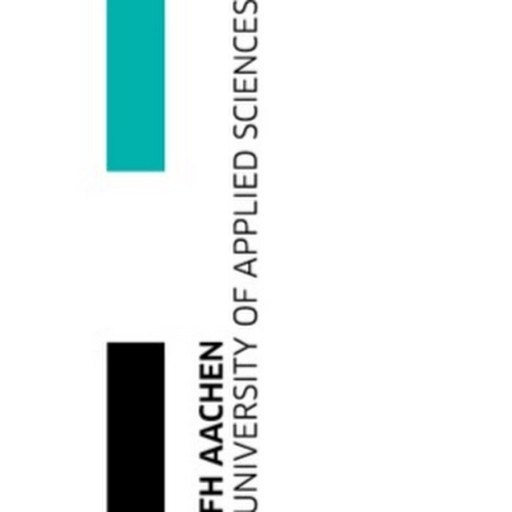Photos of university / #umeauniversitet
The Master's Programme in Computational Science and Engineering at Umeå University is a comprehensive and advanced educational track designed to equip students with the essential skills and knowledge required to address complex scientific and engineering challenges through computational methods. This interdisciplinary programme combines principles from computer science, applied mathematics, physics, and engineering to provide a solid foundation in modeling, simulation, data analysis, and high-performance computing. Students will learn to develop and implement algorithms, utilize modern software tools, and apply computational techniques to real-world problems across various domains such as environmental modeling, biomedical engineering, automation, and energy systems. The curriculum emphasizes both theoretical understanding and practical application, ensuring graduates are well-prepared for careers in research, industry, or academia. The programme offers a range of coursework in numerical methods, software development, data management, and parallel computing, complemented by project work that fosters collaboration and problem-solving skills. Students will also have opportunities to engage in cutting-edge research projects and collaborate with industry partners. Graduates of the programme will possess the ability to analyse large datasets, optimize complex systems, and develop innovative solutions using computational tools. The programme is designed to be internationally oriented and prepares students for further doctoral studies or professional roles in sectors where computational expertise is in high demand. Situated in a vibrant academic environment, the programme emphasizes fostering an innovative mindset and encourages students to contribute to technological advances and scientific breakthroughs. With access to state-of-the-art facilities and close ties to industry and research institutions, students will gain valuable experience and build networks that support their future careers. Overall, the Master's Programme in Computational Science and Engineering aims to develop highly skilled practitioners capable of applying computational techniques to solve some of the most pressing scientific and technological challenges of today and tomorrow.
The Bachelor's programme in Computational Science and Engineering at Umeå University offers students a comprehensive education in the interdisciplinary field that combines principles from computer science, applied mathematics, and engineering. The programme is designed to equip students with the skills necessary to develop and apply computational methods for solving complex scientific and engineering problems across a variety of disciplines. Throughout the programme, students will gain a deep understanding of numerical analysis, simulation techniques, algorithm development, and programming, all within the context of real-world applications.
The curriculum emphasizes both theoretical foundations and practical implementation. In the initial stages of the programme, students explore core subjects such as mathematics, physics, and basic programming, establishing a solid ground for advanced studies. As they progress, the coursework focuses on specialized areas including computational modeling, data analysis, high-performance computing, and scientific visualization. The programme encourages active participation in project work, often involving collaboration with industry and research institutions to provide practical experience and foster problem-solving skills.
Students will have the opportunity to work on projects that involve simulating physical phenomena, analyzing large datasets, and developing computational solutions for engineering challenges. The programme also prepares students for postgraduate studies or careers in academia, industry, and research environments where computational methods play a pivotal role. An internship or industrial placement phase allows students to gain insight into professional applications of their skills in real-world settings.
The programme is delivered by qualified faculty members who are active researchers in their fields, ensuring that students are learning from experts engaged in the latest developments in computational science. Umeå University offers state-of-the-art laboratories and computational resources to support student projects and research activities.
Graduates from the Bachelor's programme in Computational Science and Engineering will be well-equipped to undertake further studies at the Master's level or to enter the workforce as computational specialists in sectors such as energy, manufacturing, environmental science, information technology, and more. The programme aims to foster innovative thinking, technical competence, and an interdisciplinary approach to addressing complex problems through computation.
The Bachelor’s degree programme in Computational Science and Engineering at Umeå University requires applicants to have a Swedish upper secondary school qualification or an equivalent international qualification demonstrating proficiency in English. Prospective students should possess a solid foundation in mathematics, including calculus, linear algebra, discrete mathematics, and basic programming skills. The programme is designed to provide a comprehensive understanding of computational methods, modeling, and simulation techniques used to solve complex scientific and engineering problems. Students are expected to undertake coursework in numerical analysis, scientific programming, data structures, and algorithms, along with physics and engineering principles as relevant to computational applications. A strong emphasis is placed on developing programming skills in languages such as Python, C++, and MATLAB, as well as gaining hands-on experience with modern computational tools and software.
Furthermore, applicants should demonstrate analytical thinking and problem-solving abilities, with an interest in interdisciplinary applications ranging from physics and biology to engineering and computer science. Prior experience with computer programming projects, scientific research, or technical problem-solving can be advantageous. The programme includes theoretical instruction, laboratory work, and project-based learning, culminating in a degree project where students apply their knowledge to real-world problems. To ensure preparedness, prospective students are encouraged to review the entry requirements specified by Umeå University and fulfill the prerequisites in mathematics and programming as outlined. Additionally, applicants should submit supporting documents such as transcripts, proof of English proficiency (e.g., IELTS or TOEFL scores), and a personal statement explaining their motivation and interests related to computational science and engineering. Meeting the minimum requirements does not guarantee admission; selection is competitive and based on academic merit. The programme aims to equip students with the skills necessary for careers in industry, research, or further studies in computational disciplines.
The Master’s program in Computational Science and Engineering at Umeå University offers several financing options for prospective students. Tuition fees are applicable for non-EU/EEA students, while students from within the EU/EEA and Switzerland are generally not required to pay tuition fees. For international students who need financial assistance, Umeå University provides various scholarship opportunities, including faculty-specific and university-wide scholarships, which can partially or fully cover tuition fees. Applicants are encouraged to explore these scholarship schemes and apply accordingly, adhering to deadlines and specific criteria. Moreover, the university offers guidance on external funding sources, such as Swedish government grants, Erasmus+, and other international scholarship programs that support students pursuing master's studies.
While tuition fees are determined by the university and subject to change, students should budget for additional living expenses, including accommodation, food, textbooks, and transportation, which are not covered by scholarships. International students are also advised to consider costs related to health insurance as mandated by Swedish authorities. Students may consider taking out student loans if eligible, or seek funding from their home countries through national scholarship programs or sponsorships.
The university also provides financial guidance and support services to help students identify and apply for funding opportunities. It is recommended that students begin the financing applications well in advance of program start dates to ensure timely processing. Being proactive in seeking out scholarships, grants, and external funding sources can significantly ease financial burdens and allow students to focus on their academic pursuits. Overall, Umeå University is committed to supporting students financially through a combination of internal scholarships and external aid, making advanced education in computational science accessible to talented students from diverse backgrounds.
The Master’s Programme in Computational Science and Engineering at Umeå University is a comprehensive and interdisciplinary program designed to equip students with advanced knowledge and skills in the field of computational methods and their applications in science and engineering. The program focuses on the development and application of computational models and simulations to solve complex problems across various scientific disciplines. Students will gain competencies in numerical analysis, programming, scientific computing, and data analysis, enabling them to contribute to research and development in areas such as physics, biology, engineering, and environmental science.
Throughout the program, students are introduced to a variety of computational techniques, including finite element methods, molecular dynamics, machine learning, and high-performance computing. The curriculum emphasizes both theoretical understanding and practical skills, ensuring graduates are capable of designing, implementing, and evaluating computational solutions for real-world problems. The program also encourages interdisciplinary collaboration, preparing students to work in diverse research environments that require analytical thinking and problem-solving abilities.
The program is structured to include coursework, project work, and a master’s thesis, providing students with opportunities to apply their knowledge in practical settings. The courses are taught by experienced faculty members who are actively involved in research, offering students insights into current advancements and challenges in computational science. Umeå University provides access to state-of-the-art computing resources and laboratories, supporting students in their practical training.
Graduates of the program are highly sought after in both academia and industry, as computational skills are increasingly essential across various sectors. The program prepares students for careers in research, software development, data analysis, and engineering consultancy. Additionally, students have the opportunity to pursue doctoral studies or specialized training in computational science fields.
The Master’s Programme in Computational Science and Engineering also emphasizes lifelong learning, critical thinking, and ethical considerations related to computational research and technological development. It fosters an innovative mindset and a problem-oriented approach, encouraging students to develop solutions that address societal challenges. Applicants typically need to have a bachelor's degree in engineering, science, or a related field, along with proficiency in mathematics and programming.
In summary, Umeå University’s Master’s Programme in Computational Science and Engineering offers a rigorous education in computational techniques, blending theory and practice, to prepare students for impactful careers in science, technology, and industry, supporting the advancement of computational methodologies in solving the world's most pressing problems.










